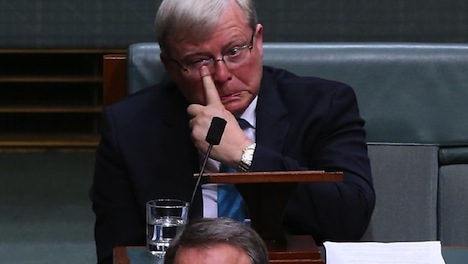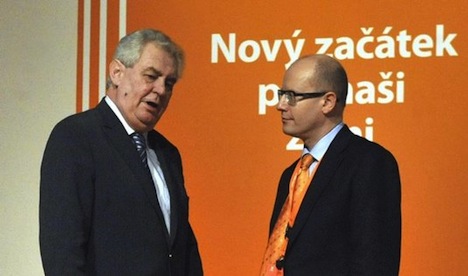It’s hard to find anyone in Australia who lacks strong feelings about former prime minister Kevin Rudd.![]()
Some Australians believe that Rudd is among the most talented politicians of his era, who led Australia’s Labor Party out of the wilderness and into government in 2007, who set the stage for a landmark carbon pricing scheme (that Australia’s new center-right prime minister Tony Abbott now hopes to repeal), and who earlier this year salvaged what would have been a landslide loss of devastatingly historical proportions under Labor prime minister Julia Gillard.
Some Australians believe that Rudd, for all his political gifts, is a temperamental figure who failed to push through legislative accomplishments and whose dysfunctional leadership inevitably led to the 2010 putsch that ousted him and installed Gillard as Labor Party leader and as prime minister. They also believe that his constant briefing after the 2010 leadership change almost fatally wounded Gillard and Labor in the August 2010 election, and that as foreign minister between 2010 and 2012, Rudd continued to harm Gillard to the point that a desperate Labor caucus turned to Rudd at the last minute in June 2013 to save them from impending electoral doom.
That’s why there was simply no way that Labor can fully move forward from the poisonous Rudd-Gillard era while Rudd continues to sit in the Australian parliament — and that’s why Rudd stepped down on Wednesday from his Queensland seat in the House of Commons, which he had held continuously since 1998.
As Rudd himself noted in his announcement that it was ‘time to zip,’ it’s become a precedent that former prime ministers on both the left and the right leave parliament shortly after losing elections:
“It was right and proper that I report my decision to the Parliament at the earliest opportunity. “That day is today. I have chosen to do so now to create minimal disruptions to the normal proceedings of the house.
“My predecessors as prime minister, Whitlam, Fraser, Hawke and Keating, reached similar decisions to leave the Parliament before the subsequent election. As did would-be prime ministers, Costello and Downer, perhaps prime minister Howard would have done the same had he retained the seat of Bennelong, although we will never know.”
The sharp ding at Howard was classic Rudd — Howard famously lost his seat in the 2007 landslide that ushered Rudd and Labor to power. Rudd himself faced a difficult fight in the September 2013 election, though he ultimately survived a strong Liberal challenge (moreover, it’s not certain that Labor will retain the seat now that Rudd is resigning).
Continue reading Rudd’s departure from Australian politics vital to Labor’s future

